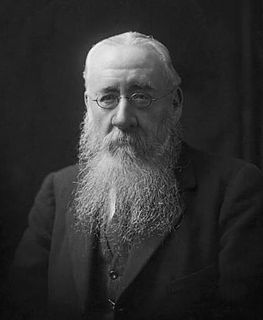A Quote by George Saintsbury
One of the best known, and one of the least intelligible, facts of literary history is the lateness, in Western European Literature at any rate, of prose fiction, and the comparative absence, in the two great classical languages, of what we call by that name.
Related Quotes
The ratio of authentic literature to trash in pornography may be somewhat lower than the ratio of novels of genuine literary meritto the entire volume of sub-literary fiction produced for mass taste. But it is probably not lower than, for instance, that of another somewhat shady sub-genre with a few first-rate books to its credit, science fiction.
I may remind you that history is not a branch of literature. The facts of history, like the facts of geology or astronomy, can supply material for literary art; for manifest reasons they lend themselves to artistic representation far more readily than those of the natural sciences; but to clothe the story of human society in a literary dress is no more the part of a historian as a historian, than it is the part of an astronomer as an astronomer to present in an artistic shape the story of the stars.
It remains a mystery to me why some of that [pulp] fiction should be judged inferior to the rafts and rafts of bad social [literary] fiction which continues to be treated by literary editors as if it were somehow superior, or at least worthier of our attention. The careerist literary imperialism of the Bloomsbury years did a lot to produce fiction's present unseemly polarities.
Considering that "literary fiction" is a sub-genre that's not quite the same as "literature," either, it follows that the short, semi-humorous bits posted online for all to see are something absolutely other, uniquely themselves compared to canonical short stories, for example, and so it'd probably be best to call it something other than "online lit" since I honestly think very little of it can compare to so-called "literature."
In high school, in 1956, at the age of sixteen, we were not taught "creative writing." We were taught literature and grammar. So no one ever told me I couldn't write both prose and poetry, and I started out writing all the things I still write: poetry, prose fiction - which took me longer to get published - and non-fiction prose.
I'm a professor of comparative literature, among other things, so I'm able to read in a couple of other languages, and I understand that not everyone is, not everyone can, although it is quite stunning how many people do read Spanish in the United States, but moving between languages is also extremely helpful.
Science fiction is the most important literature in the history of the world, because it's the history of ideas, the history of our civilization birthing itself. ...Science fiction is central to everything we've ever done, and people who make fun of science fiction writers don't know what they're talking about.
I hate to see great works of literature ghettoized, whereas others that conform to the rules, conventions, and procedures of the genre we call literary fiction get accorded greater esteem and privilege. I also have a problem with how books are marketed, with certain cover designs and typefaces. They're often stamped with an identity that has nothing to do with their effect on the reader.
Writing in African languages became a topic of discussion in conferences, in schools, in classrooms; the issue is always being raised - so it's no longer "in the closet," as it were. It's part of the discussion going on about the future of African literature. The same questions are there in Native American languages, they're there in native Canadian languages, they're there is some marginalized European languages, like say, Irish. So what I thought was just an African problem or issue is actually a global phenomenon about relationships of power between languages and cultures.




































